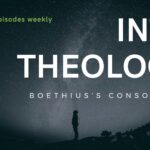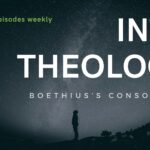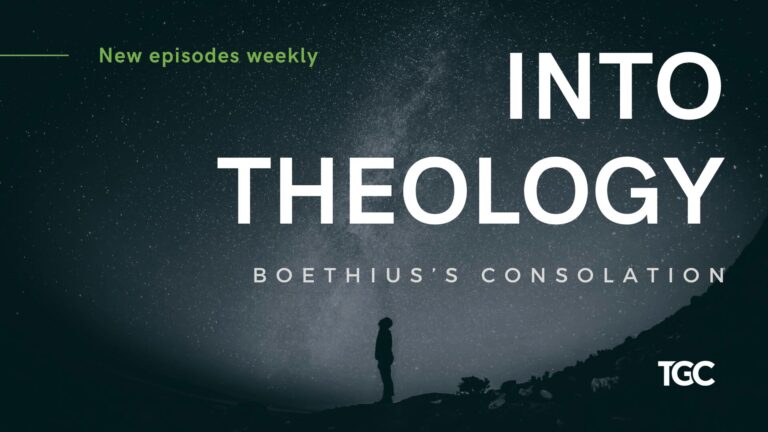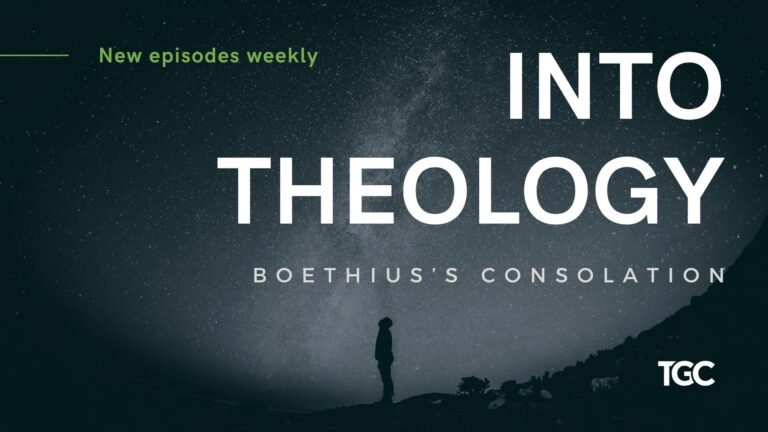We are alone and lonely. At least one-quarter of Canadians experience persistent loneliness. The numbers may be even higher in the United States. While age, disability, and singleness all contribute to why we might feel lonely, other potential causes exist. Technology can dehumanize relationships. Social media has created bunker-socialites who stay home and yet are connected to the world.
And yet something embedded into our understanding of the world further contributes to our feelings of isolation. We live in a world today in which the sacred and transcendent is but a ghost in a shell. To borrow an image from Charles Taylor, we are haunted by transcendence. Like a poltergeist whispering truths of heavenly realities, the divine realm has lost its concrete form.
Many of us believe the lie that nature is all there was, is, and ever will be. And despite our valiant attempts to re-enchant the world around us with the truth that the heavens declare God’s glory and the need for spiritual salvation, many of us increasingly feel alienated from divinity, from transcendence, from that haunting whisper: I am your creator and sustainer.
For those of us who experience loneliness, knowing and loving God as well as loving others can free us from our feelings of isolation.
Friendship
I have had exactly two close friends in my early life. I lost the first by moving to another city and the second simply moved on.
But new friends come. And go. For anyone who has moved before, this pattern of friendship and loss marks a life.
Sometime in my 20s, I noticed that my close friends ceased being my friends when geography separated us. The very few close friends that I gained disappeared. Without intending to do so, however, I began the process of calling or messaging friends with relative frequency.
Constant communication, despite geography, helped me to preserve friendships. And so these tools of isolation (technology and social media) ironically became the glue that kept strong bonds that geography threatened to pull apart.
It takes considerable effort to gain and maintain friendships. But it is worth it: “A man of many companions may come to ruin, but there is a friend who sticks closer than a brother” (Prov 18:24). Finding such friends help us avoid ruin and provide relationships that may be closer than family.
To fight the epidemic of loneliness, we need friends. They are an antidote to heal the poison of isolation.
God
Nature is brutal. Kill or be killed. Storms swallow coasts. Earthquakes shatter cities. The universe declares life to be insignificant, unstable, and short—unless God exists.
If God exists, then the above narrative dies and in its place comes hope. Nature tilts towards evil, but it shouts for redemption and lives in the hope of Christ the cosmic reconciler. The hand of Providence guides nature. The bubbling of the sea belongs to the Lord. And he will bring into subjection even the deep places.
Life too is significant. Every life, from small to large, has dignity. Though our lives may seem short and unstable, God will open the gates of eternity to us where we finally find rest for our restless souls.
God exists. That changes everything.
Nature, that imperious and impenetrable wall of danger becomes the medium for God to shout: “See my glory.” A tree now becomes the gracious provision of God for shade and oxygen. A mountain reminds us of the power of God, even in the hard times. The sea with all its chaotic movement reminds us that God will make it still as he will our restless hearts.
And in Christ, we have not only God himself but a true friend. As the exemplar for ideal friendship, Christ our friend “loves at all times” (Prov 17:17).
Loneliness
I do not pretend to have figured out all the practical obstacles to overcoming loneliness. Far from it. But I can tell you what has helped me and what will help others: God and friends. Put in biblical language, the love of God and neighbour overcome loneliness.
The practical application of this truth will look different for the elderly, disabled, and single. Churches will need to work together to ensure that those who are most susceptible to loneliness can find neighbours to love.
Yet no matter the obstacles, we must find ways to love God and neighbour. And that last injunction might just mean that we sacrifice our time and comfort to introduce the love of God and give our friendship to our neighbour.
And we need to finally admit: some of us may never have perfect friendships or access to experiences of intimate love. But we are saved in hope, as we groan on in this fallen world to the upward prize of our calling.
Jesus, our friend, left us for a short time. He went to prepare a room for you. So that when you receive your crown, you can dine with him, resting on him as a disciple whom Jesus loves. And this hope of fulfilling friendship with Jesus brings with it joy forevermore and the presence of God himself.
There, all our unstable desires become stable. Longings become our belongings. And we will have the greatest prize: God himself. We will not be lonely forever. As the old hymn says, “What a friend we have in Jesus.”












